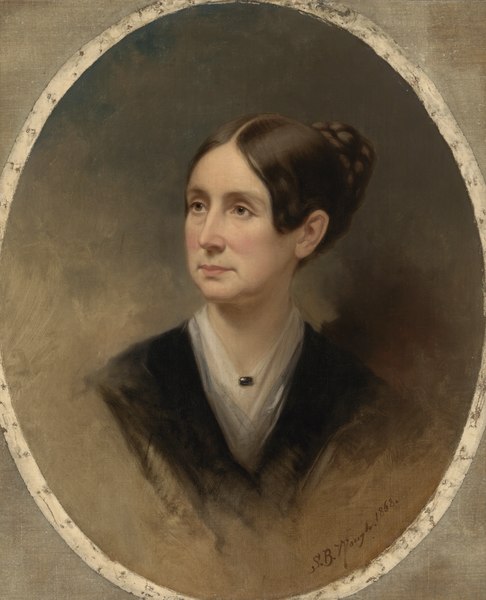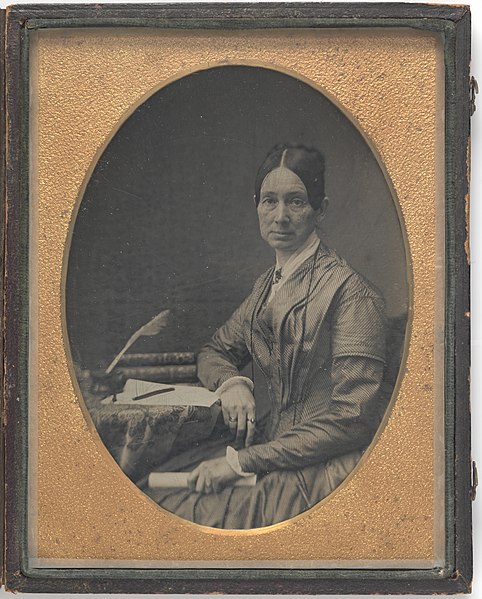Dorothea Dix, born on April 4, 1802, in Hampden, Maine, was a remarkable 19th-century American reformer known for her advocacy in various areas of social welfare.
Her life’s work centered on improving the lives of the mentally ill, disabled veterans, and impoverished populations.
She played a pivotal role in reshaping the mental healthcare landscape in the United States, including the establishment of the first public mental hospital.
Beyond her contributions to healthcare, she served as the Superintendent of Army Nurses during the Civil War and inspired global reforms in mental health care.
Dix’s legacy is marked by her unwavering dedication to social reform and the rights of vulnerable individuals.
Dorothea Dix Facts
1. Born on April 4, 1802, in Hampden, Maine, USA
Dorothea Dix was born in a small town in Maine, which was then part of Massachusetts. She was the first of three children in her family.
Her early life was marked by various challenges, including the absence of her father, who was an itinerant Methodist preacher.

2. Started her career as a schoolteacher
In her early adulthood, Dorothea Dix began working as a schoolteacher. She started her first school in 1821 in Worcester, Massachusetts.
Also Read: Dorothea Dix Accomplishments
Teaching was a common profession for women of her time, and it was during this period that she began to develop an interest in education and social reform.
3. Advocated for mental health reform in the 19th century
Dorothea Dix’s pivotal work in mental health reform began in the 1840s. Her journey into this field was inspired by personal experiences and a sense of moral duty.
While teaching in Massachusetts, she encountered mentally ill individuals who were incarcerated in prisons and almshouses under inhumane conditions. Shocked by what she saw, she decided to investigate further and advocate for change.
Dix’s advocacy took her to numerous states in the United States, where she documented the dreadful conditions faced by the mentally ill. She believed that individuals with mental illnesses deserved humane treatment and specialized care, rather than being confined to jails and almshouses.
Her efforts led to a groundbreaking movement to establish state-funded mental asylums that would provide proper care and treatment for those suffering from mental illnesses. Her passionate and relentless advocacy played a pivotal role in reshaping the mental healthcare landscape in the United States during the 19th century.
4. Worked to establish state-funded mental asylums
Dorothea Dix’s tireless advocacy efforts focused on the establishment of state-funded mental asylums across the United States.
She believed that individuals with mental illnesses should receive proper care and treatment in dedicated facilities rather than being incarcerated in overcrowded prisons and almshouses.
One of her major accomplishments in this regard was the establishment of the State Hospital for the Insane in Worcester, Massachusetts, in 1836. This institution was the first public mental hospital in the United States. It set a precedent for the development of similar facilities in other states.
Over the years, Dix’s advocacy led to the creation of numerous mental asylums, which were meant to provide a more humane and therapeutic environment for individuals with mental illnesses. Her efforts significantly improved the living conditions and treatment options for those suffering from psychiatric disorders.

5. Established the first public mental hospital in the United States
The State Hospital for the Insane in Worcester, Massachusetts, was a pioneering achievement in the history of mental healthcare. This institution represented a departure from the previous practice of confining mentally ill individuals in prisons and almshouses.
The Worcester State Hospital served as a model for the development of similar institutions in other states. It emphasized the importance of specialized care, therapeutic environments, and the separation of mentally ill patients from the general prison population.
Dorothea Dix’s dedication and influence were instrumental in securing the necessary funding and political support for the creation of such institutions, and she continued to push for improvements in their management and treatment practices.
6. Wrote the influential book “Memorial” to highlight poor conditions
In 1843, Dorothea Dix published a powerful document titled “Memorial: To the Legislature and the Executive of the Commonwealth of Massachusetts.” This document was a detailed and impassioned account of the deplorable conditions faced by mentally ill individuals in jails and almshouses across the state.
“Memorial” played a significant role in raising awareness and garnering public support for mental health reform. Dix’s eloquent and fact-based narrative presented a compelling case for the establishment of proper mental asylums and the improvement of conditions for the mentally ill.
Her book had a profound impact on Massachusetts, leading to legislative action and the eventual creation of the Worcester State Hospital, marking a significant step forward in the treatment of individuals with mental illnesses in the United States.

7. Served as superintendent of Army Nurses during the Civil War
During the American Civil War (1861-1865), Dorothea Dix was appointed as the Superintendent of Army Nurses for the Union Army by President Abraham Lincoln. This was a crucial role as she was responsible for organizing and overseeing the nursing care provided to wounded soldiers on the battlefield.
Dix’s organizational skills and dedication helped establish a system for recruiting and training nurses to care for the injured and sick soldiers. She also ensured that hospitals were properly equipped and maintained to provide medical care.
Her work as superintendent of Army Nurses marked another significant contribution to healthcare and highlighted her commitment to caring for those in need, even in the challenging circumstances of wartime.
8. Advocated for disabled veterans and impoverished populations
Dorothea Dix’s advocacy efforts extended beyond her work in mental health reform. She was a tireless champion for the rights and well-being of disabled veterans and impoverished individuals.
After the Civil War, she continued to lobby the government to provide support and pensions for disabled veterans, recognizing their sacrifices in service to their country.
Dix also worked to improve conditions in almshouses and poorhouses, where impoverished individuals often lived in squalid conditions. Her advocacy aimed to ensure that the destitute and vulnerable received more humane treatment and support.

9. Inspired global reforms in mental health care
Dorothea Dix’s advocacy efforts and her pioneering work in the establishment of mental asylums had a lasting impact beyond the United States. Her dedication to improving the lives of mentally ill individuals inspired similar reforms in other countries, including Canada and various European nations.
Her advocacy and influence contributed to a broader global movement towards more compassionate and humane treatment of those suffering from mental illnesses.
10. Passed away on July 17, 1887, leaving a lasting legacy in healthcare and human rights
Dorothea Dix passed away on July 17, 1887, in New Jersey, at the age of 85. Her legacy is imprinted on the history of healthcare and social reform in the United States.
Her work reshaped the landscape of mental healthcare, led to the creation of mental asylums, and brought about lasting improvements in the treatment of individuals with mental illnesses.
Dix’s commitment to advocacy and reform in various areas of social welfare, including mental health, the rights of veterans, and the impoverished, left an indelible mark on the field of social work and human rights.
Today, she is remembered as a pioneering reformer and a tireless advocate for the rights and dignity of vulnerable populations, and her contributions continue to inspire those who work towards social justice and improved healthcare.
